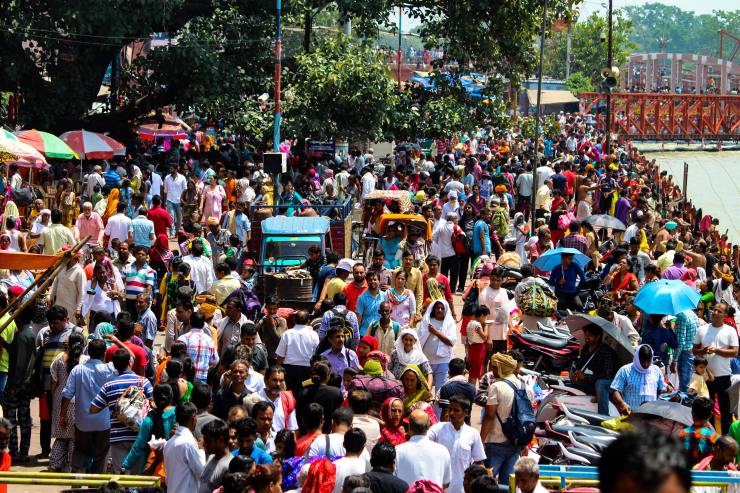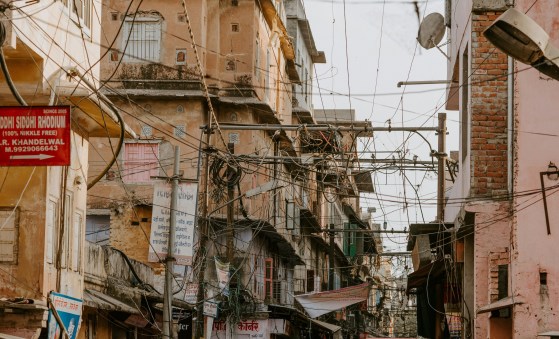
A friend recently pointed out that much of human action and thinking is not driven by hate or anger but by the urge to protect what we love. Dallas Willard elaborated on this notion in his book titled Renovation of The Heart, stating that for a person to lead according to God’s “wisdom, goodness, power, and plan,” there needs to be a "divine renovation" in the depths of the leader which then reflects in the "natural transformation of social structures." The leader’s heart mirrors the social structures that are created under that leadership. Looking at the state of the world around us, the question then arises: If democracy was birthed through the virtues of peacekeeping and power-sharing among the people, is the semblance of people’s hearts truly reflected in the appropriation of religion-based nationalism within a pluralistic democracy or is it simply a gross manipulation of the masses because leadership is rooted in a love of money? After all, as Willard articulated: streams of justice and righteousness cannot flow through corrupted souls.
We’ve all heard John Acton’s famous words to Bishop Creighton, "absolute power corrupts absolutely." Acton was a historian and a politician who was concerned about the concentration of power and its potential for abuse. As he was observing the rise of authoritarian regimes, he implored people to think about the balance of power and the risk of tyranny and oppression under unchecked powers. Human corruption is inevitable without the understanding and healthy fear of God. Therefore, what Acton failed to acknowledge was that more important than the revolution of social institutions remains the need for the renovation of the character of those leaders who care enough to restore people’s trust.
The lack of leaders with renovated hearts has historically led to the rise of power-hungry leaders who weakened democratic institutions and encouraged the presence of extremist factions. The rise of the authoritarian Nazi movement began with the weaknesses within the Weimar Republic. Adolf Hitler, with his charismatic oratory and propaganda, capitalised on the disillusionment and resentment that many Germans felt towards the Weimar Republic. He appealed to nationalist sentiments and promised to restore order at a time when people needed some security in their sense of identity and belonging. Hitler’s vision of a racially pure and powerful German state resonated with many Germans who longed for a return to traditional values and restored glory. However, once in power, Hitler and the Nazi Party rapidly consolidated their authority, dismantling democratic institutions and eliminating political opposition. Through measures such as the Enabling Act of 1933, which granted Hitler dictatorial powers, and the Night of Long Knives, during which Hitler purged potential rivals within the Nazi Party, Hitler effectively centralised power in his hands, leading to unchecked authority.
Power-hungry leadership leads to the erosion of civil liberties, creating apathy among participants in a democracy because the abuse of power diminishes trust in the political system and the belief that the people’s voices and votes matter. Towards the end of last year, The Harvard Gazette reported that a "growing number of Gen Z and late Millennials are disenchanted with the two major political parties" and that the number of young Americans who say they will "vote in the 2024 election has dropped from 57 percent to 49 percent since fall 2019."
While voters in the United States may want their voices to be heard regarding issues related to "gun violence, climate change, healthcare, crime and the wars" the voters in the world’s largest democracy are simply hoping that the virtues of democracy are still being honored.
Just last month, a famous YouTuber, received over 10 million views within less than 24 hours where he questioned whether India was operating as a democracy especially in light of the events of this past month.
The largest opposition party of India, the Indian National Congress, reported that their bank accounts have been frozen, limiting their campaign efforts. The Chief Minister of Delhi was arrested. Opposition leaders have been arrested and put behind bars without any crime proven against them. The viral YouTube video outlined, in great detail, the harassment that is being brought upon those that stand against authoritarianism. The reporter mentioned that "the 2018 amendment" to the Prevention of Money Laundering Act, 2018, changed the conditions for bail. The amendment reversed the provision of "innocent until proven guilty" so that any accused is "guilty until proven innocent." So, anyone can be targeted as long as they are deemed a threat to the ones in power. Manipur remains in anguish.
News of Sonam Wangchuk’s hunger strike has been concealed from the media. No one is supposed to talk about the recent Hindenburg research report. When Rahul Gandhi brought it up, he was sentenced for defamation. The ruling party and the opposition both say that their actions are driven by their urge to protect what they love – their nation! Meanwhile, the average common folk are trying to cope with raising inflation, broken promises, and voter apathy stemming from a state of helplessness. What can the powerless do about the unchecked powers of authority figures who have taken over the electoral process?
A renovation of the heart would perhaps seek to restore the trust of the people so they know that fair and transparent elections are ensured. The use of the Electronic Voting Machines (EVMs) is currently under consideration by the Supreme Court of India because central to democracy is the concept of justice, ensuring that every voice is heard and every vote is counted with integrity. Proverbs 11:3 states, "The integrity of the upright guides them." Therefore, it is essential that electoral systems are designed to be inclusive of all people rather than supporting the concentration of power and its potential for abuse.
The people remain hopeful that the decision of the Supreme Court will ensure the voting technologies align with democratic principles. From a standpoint of Christian ethics, questions can be raised about adopting technological innovations in the electoral process within a context where many voters come with limited literacy or technological proficiency. A sizable part of India still comprises rural areas where access to technology and infrastructure is often limited. For people living in villages, the electronic voting system can seem daunting, potentially undermining voter confidence and even limiting participation.
The poor and the rural communities cannot be ignored. Throughout the Bible, God demonstrates extra care and compassion towards the poor. Proverbs 22:16 says, "Whoever oppresses the poor to increase his own wealth, or gives to the rich, will only come to poverty." Matthew 25:40 and Luke 14:13-14 talk about the eternal reward God gives to those who uphold the principles of equity and inclusiveness. Jesus said that the Kingdom of God belongs to the poor and the oppressed (Matthew 5 and Luke 6:20-21). In considering the ethical implications of adopting technological innovations in the electoral process, one cannot ignore its ramifications on a vast rural population of India.
In light of the security and reliability concerns, the Election Commission of India introduced Voter-Verifiable Paper Audit Trails (VVPATs), which allow voters to verify that their votes have been recorded. However, sceptics argue that VVPATs do not fully address the vulnerabilities of EVMs. Unlike traditional ballots which provide a physical record of votes cast, EVMs rely solely on electronic data. This has raised doubts among many about the accuracy and transparency of election results. Those who desire greater transparency worry about potential malfunctions or errors which could undermine the integrity of the election results. Additionally, the logistical challenges remain when deploying VVPATs on a large scale, particularly in remote or rural areas with limited infrastructure. The transportation of EVMs to remote villages can propose logistical challenges especially during rough weather conditions or in areas with poor road infrastructure. Rural areas frequently experience unreliable electricity supply, which can pose operational challenges for EVMs. Power outages and/or fluctuations can disrupt voting procedures and compromise the integrity of election results. Furthermore, there have been questions raised regarding the tampering and manipulation where oversight and monitoring may not be as robust as compared to other areas. The lack of adequate education, training, and supervision for election officials in rural polling stations further exacerbates these concerns. The Supreme Court is therefore faced with the challenge of balancing technological advancements with ethical considerations within the unique context of preserving a diverse and complex democracy.
Addressing these challenges requires leaders who reflect a renovated character through their thoughts, actions, and intentions. Such leadership can implement comprehensive strategies that demonstrate care for those with less institutionalised power. The ethical concerns need to be addressed not only with infrastructure development, prioritising education, and enhancing security measures but rather with leaders who lead from a God-honouring heart instead of a wounded spirit. The integrity and inclusivity of the electoral process need to be rooted in leadership reflecting a clean heart and a steadfast spirit (Psalm 51:10-12) if we hope to see the restoration of peacekeeping and power-sharing among the people.




